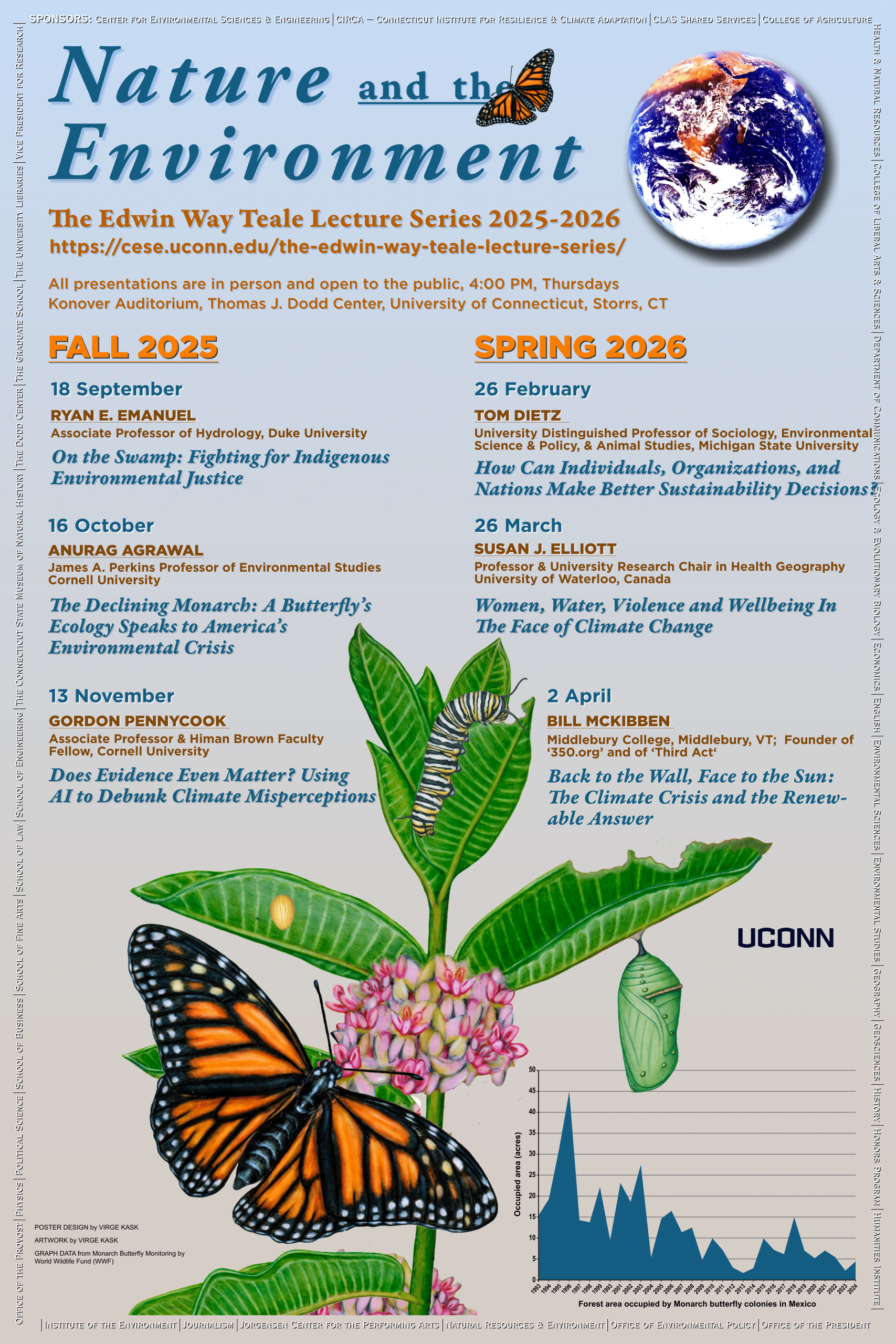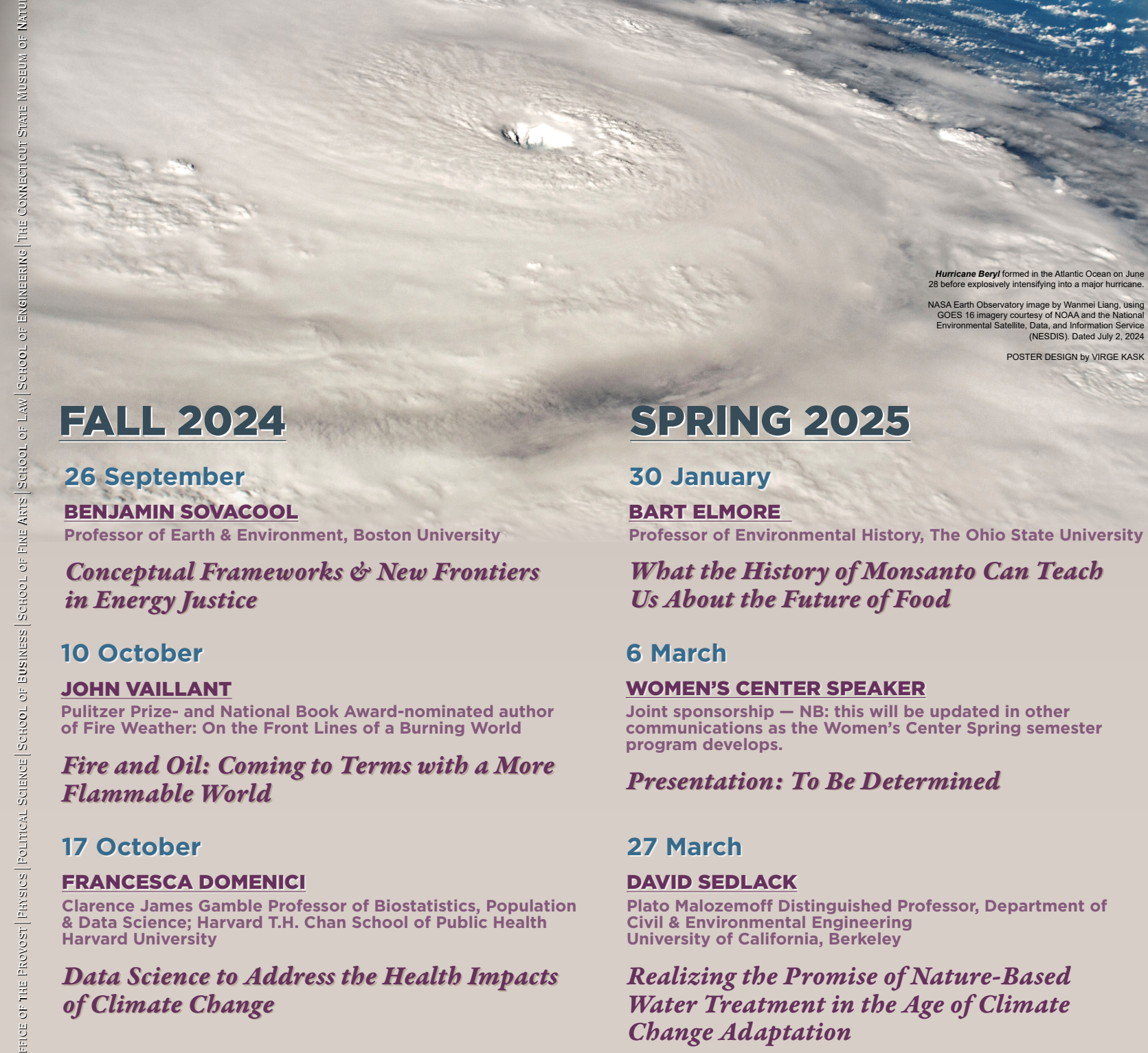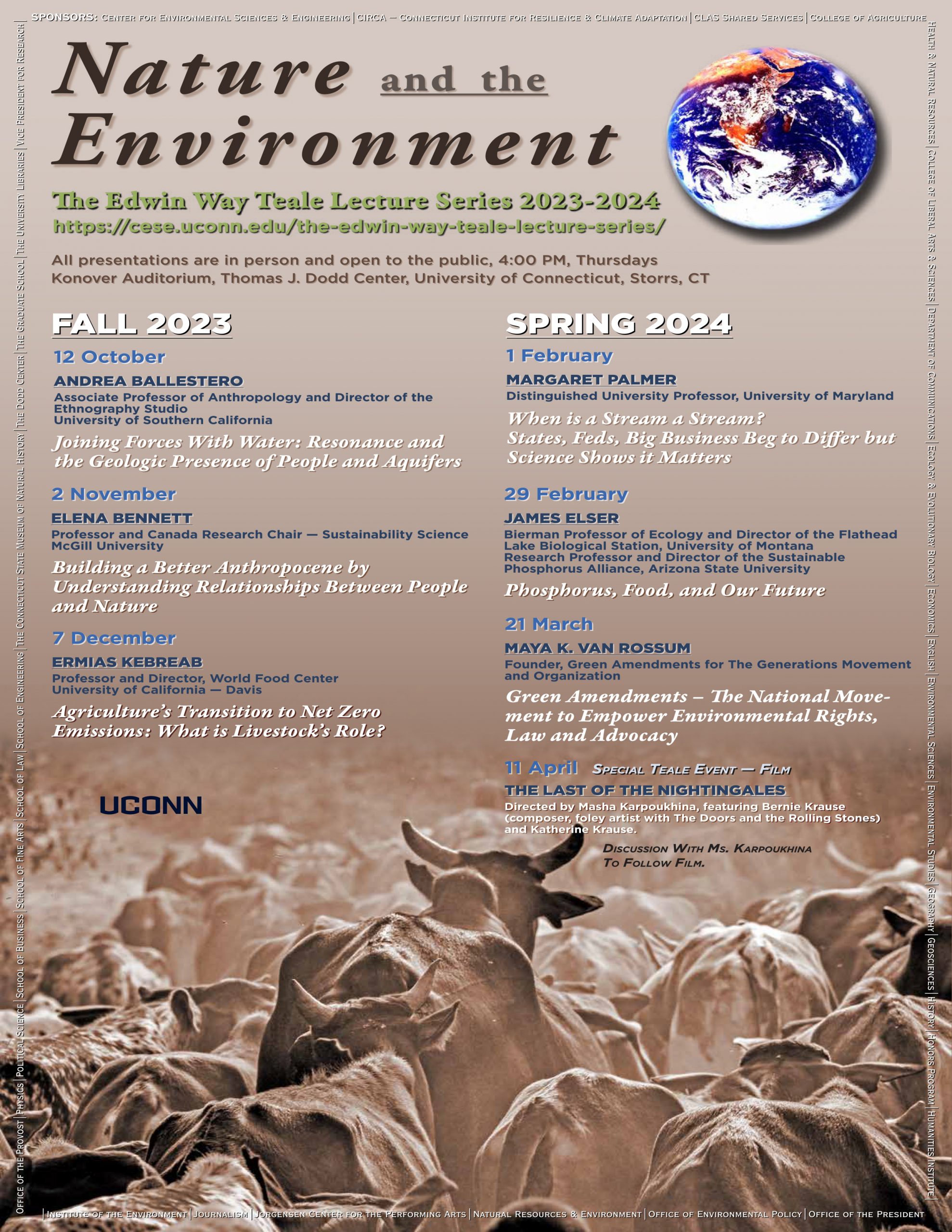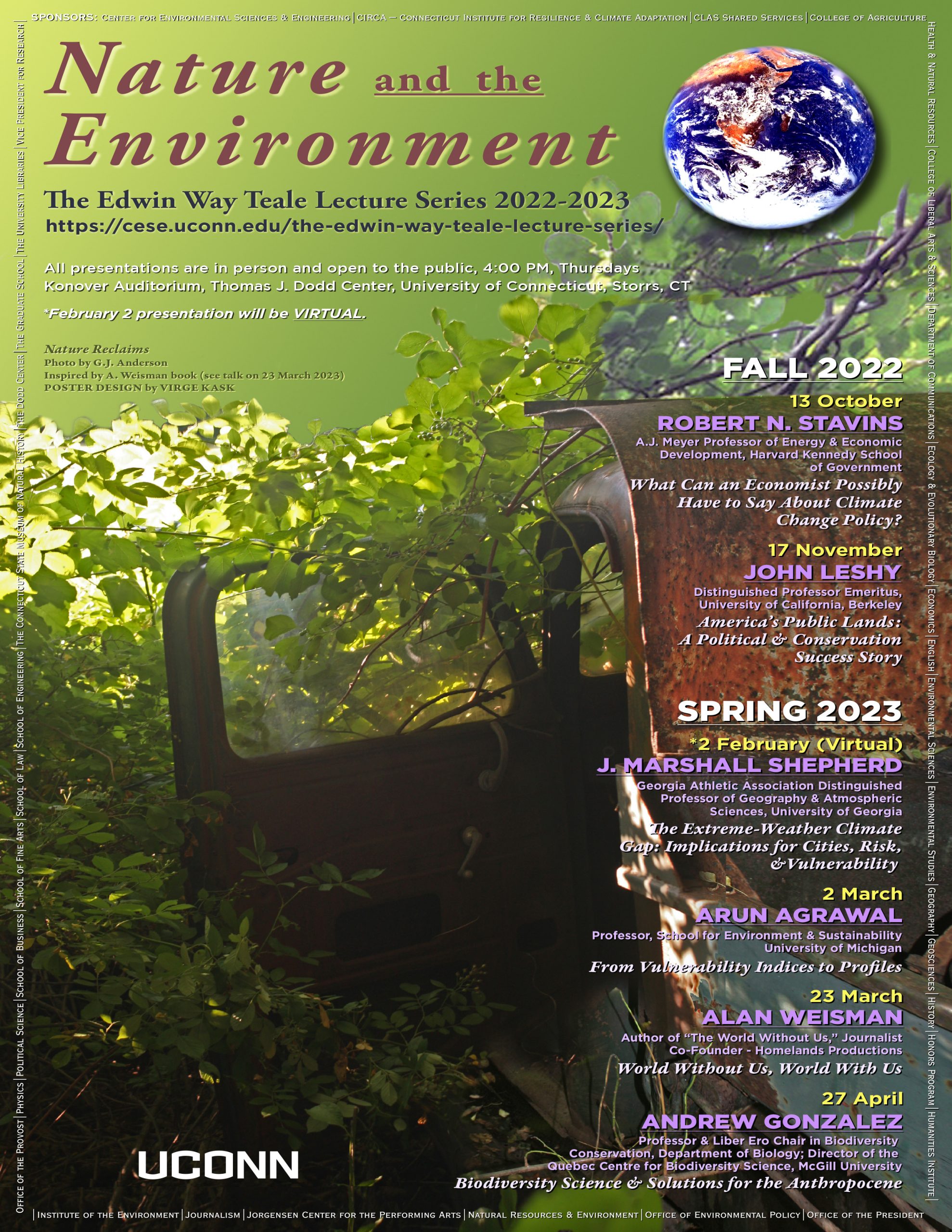Edwin Way Teale Lecture Series
The Edwin Way Teale Lecture Series —"Nature and the Environment" — honors the legacy of a prominent American naturalist, photographer, and writer who helped bridge the gap between the conservation and ecological movements of the 20th century.
Past Lectures
About Edwin Way Teale
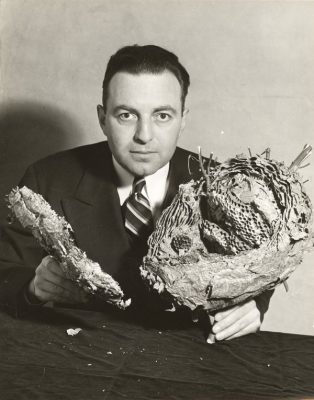 Edwin Alfred Teale was born in 1899 in Joliet, Illinois, and died in 1980 in Hampton, Connecticut. Personally, he lived the charmed life of an affable local nature writer who worked closely with his beloved wife Nellie at their old New England farmstead. Professionally, he was a forceful national advocate for respecting Nature, especially its power to teach us how to live. In 1945, he published a scathing critique of the insecticide DDT that helped inform Rachel Carson's book Silent Spring, whose 1962 publication marked America's turning point toward greater environmental awareness. Teale nurtured Carson's talent for sixteen years between 1949 and her death in 1964. In 1966 he became the first American to win the Pulitzer Prize for nature writing.
Edwin Alfred Teale was born in 1899 in Joliet, Illinois, and died in 1980 in Hampton, Connecticut. Personally, he lived the charmed life of an affable local nature writer who worked closely with his beloved wife Nellie at their old New England farmstead. Professionally, he was a forceful national advocate for respecting Nature, especially its power to teach us how to live. In 1945, he published a scathing critique of the insecticide DDT that helped inform Rachel Carson's book Silent Spring, whose 1962 publication marked America's turning point toward greater environmental awareness. Teale nurtured Carson's talent for sixteen years between 1949 and her death in 1964. In 1966 he became the first American to win the Pulitzer Prize for nature writing.
During the autumn of 1980, Edwin and Nellie donated their voluminous archive to the University of Connecticut. Today, these materials are housed within the Dodd Center where the Teale lectures are usually held. Preserved for posterity are: published books, articles, reviews; records of scientific societies; correspondence with key environmental leaders; voluminous private journals; and various awards, medals, and honorary degrees, including a record of his election as a fellow to the American Association for the Advancement of Science. This archive chronicles his life as a key founder of American environmentalism.
In 1921, Teale discovered a lifelong role model in the writings of Henry David Thoreau. In 1941, he quit his salaried day job as a magazine staff writer in New York City to become a full-time writer. In 1959, he relocated from the crowded suburbs of Long Island to the wooded highlands of eastern Connecticut, where he built a writing retreat modeled after Thoreau's famous experiment at Walden Pond.
By working independently from the 1940s through the 1970s, Edwin Way Teale was able to ignore the widening schism between the sciences and the humanities, and the narrowing and hardening of the STEM (science, technology, engineering, mathematics) disciplines. Our lecture series follows his example by featuring a smorgasbord of artists, scientists, writers, economists, filmmakers, politicians, philosophers, lawyers, archivists, journalists, and others.
Robert M. Thorson
Professor of Earth Sciences
The Teale Lecture Series is sponsored by:
Atmospheric Sciences Group
Center for Environmental Sciences & Engineering
Center of Biological Risk
CLAS Shared Services
College of Agriculture, Health and Natural Resources
College of Engineering
College of Liberal Arts and Sciences
Connecticut Institute for Resilience & Climate Adaptation
Connecticut Institute for Resilience and Climate Adaptation
Connecticut Sea Grant Program
Connecticut State Museum of Natural History
Department of Ecology & Evolutionary Biology
Department of Economics
Department of English
Department of Geography
Department of Geosciences
Department of History
Department of Natural Resources & the Environment
Department of Physics
Department of Political Science
Environmental Sciences Program
Environmental Studies Program
Honors Program
Human Rights Institute
Humanities Institute
Institute of the Environment and Energy
Office of Sustainability
Office of the President
Office of the Provost
Office of the Vice President for Research
School of Business, Graduate School
School of Fine Arts
School of Law
UConn Library


